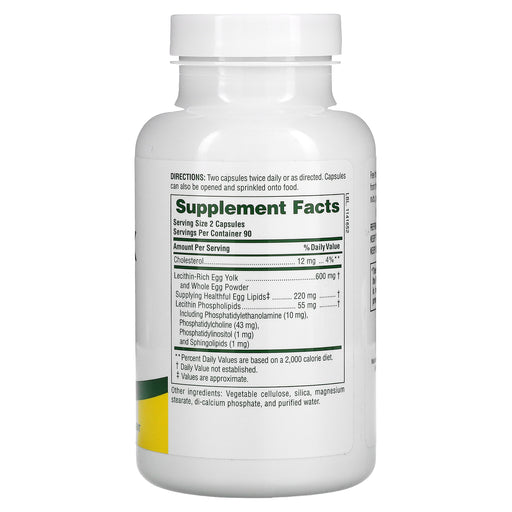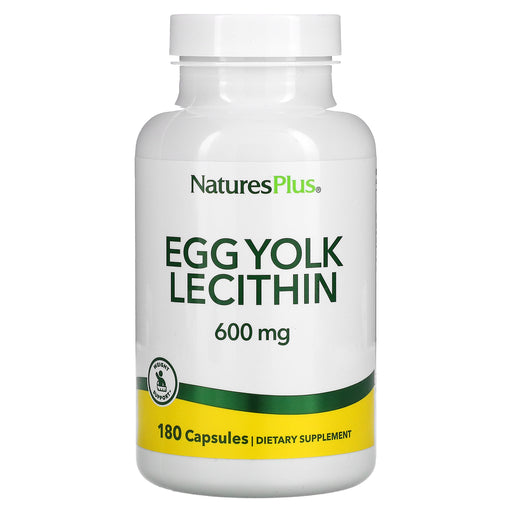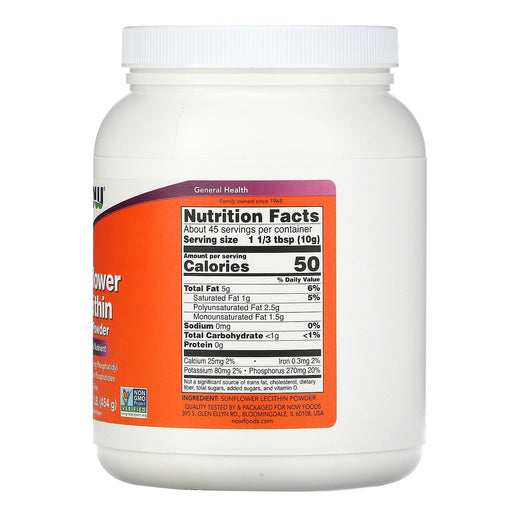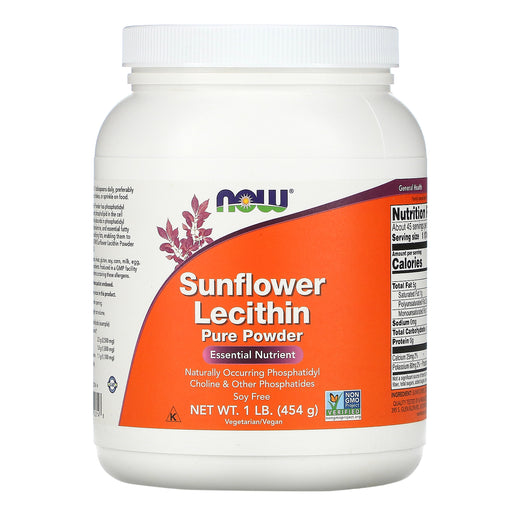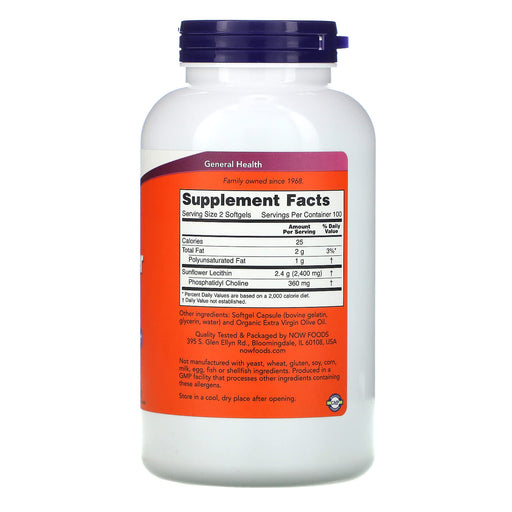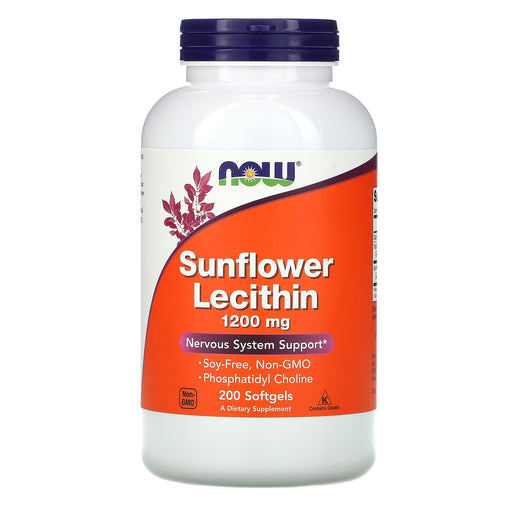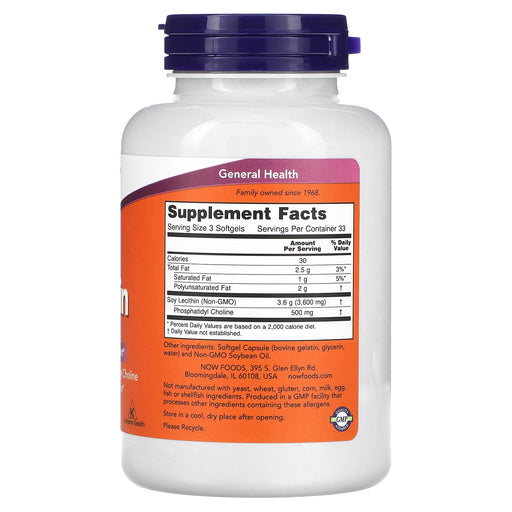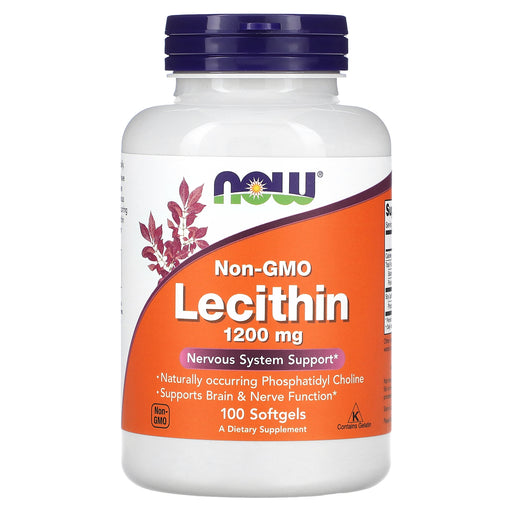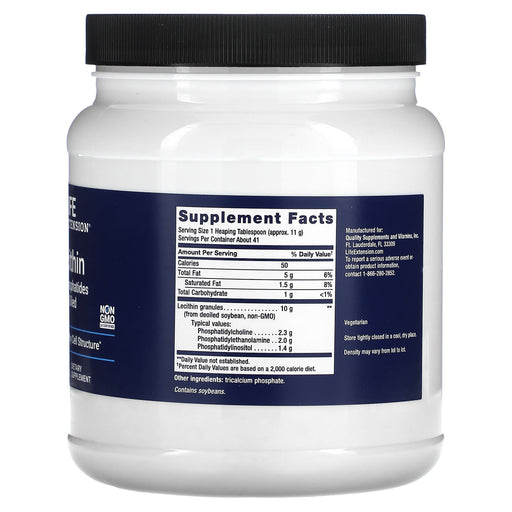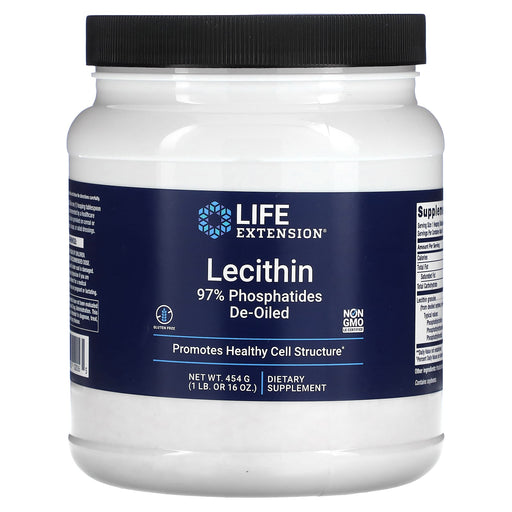
Optimize Your Brain Health and Beyond with the Power of Lecithin
Lecithin is a naturally occurring fatty substance found in various food sources, including soybeans, egg yolks, and sunflower seeds. As a vital component of cell membranes and a precursor to the neurotransmitter acetylcholine, lecithin plays a crucial role in supporting brain health, cognitive function, and overall cellular integrity. By incorporating lecithin supplements into your wellness routine, you can help to nourish your brain, promote healthy lipid metabolism, and support optimal liver function, leading to enhanced mental performance and overall well-being.
The Key Benefits of Lecithin for Brain Health and Cellular Function
Lecithin's unique composition and diverse functions make it a valuable nutrient for supporting brain health, cognitive performance, and overall cellular function. Some of the key benefits of lecithin include:
- Cognitive Support: Lecithin is a rich source of choline, a precursor to the neurotransmitter acetylcholine, which plays a vital role in memory, learning, and overall cognitive function. By supporting acetylcholine production, lecithin may help to enhance mental clarity, focus, and brain performance.
- Membrane Integrity: As a key component of cell membranes, lecithin helps to maintain the structural integrity and fluidity of cells, ensuring optimal cellular communication and function throughout the body.
- Lipid Metabolism: Lecithin contains phospholipids, which help to emulsify and break down fats in the body, supporting healthy lipid metabolism and promoting overall cardiovascular health.
- Liver Health: Lecithin has been shown to support liver function by helping to break down fatty deposits and reduce the accumulation of lipids in the liver, promoting optimal detoxification and overall liver health.
- Neurological Health: Some studies suggest that lecithin supplementation may help to support neurological health, particularly in individuals with age-related cognitive decline or neurodegenerative conditions.
The Science Behind Lecithin's Brain-Boosting Properties
Numerous studies have investigated the cognitive and neurological benefits of lecithin and its key components, particularly choline. Some of the key scientific findings include:
- Choline and Cognitive Function: Studies have shown that adequate choline intake is essential for optimal brain function, and that choline supplementation can help to improve memory, attention, and overall cognitive performance in both healthy individuals and those with age-related cognitive decline.
- Phosphatidylcholine and Neurological Health: Phosphatidylcholine, a major component of lecithin, has been studied for its potential to support neurological health and cognitive function, particularly in individuals with Alzheimer's disease and other neurodegenerative conditions.
- Liver Health and Detoxification: Animal and human studies have demonstrated lecithin's ability to support liver health by reducing the accumulation of lipids, promoting the breakdown of fatty deposits, and enhancing overall liver function and detoxification.
- Cardiovascular Health: Some studies suggest that lecithin supplementation may help to support healthy lipid metabolism, reduce cholesterol levels, and promote overall cardiovascular health.
Choosing the Right Lecithin Supplement
When selecting a lecithin supplement, it's essential to choose a high-quality product from a reputable brand. Look for supplements that:
- Provide pure, high-quality lecithin derived from non-GMO sources, such as soybeans or sunflower seeds
- Offer a standardized amount of phosphatidylcholine and other key components
- Are manufactured in cGMP-certified facilities to ensure purity, potency, and safety
- Are free from unnecessary additives, fillers, and allergens
- Offer convenient dosage forms, such as softgels or powders, to suit your preferences and lifestyle
As with any new supplement, it's essential to consult with a healthcare professional before starting lecithin, especially if you have a pre-existing health condition, are pregnant or nursing, or are taking medications.
Related Vitamins and Supplements
While lecithin is a powerful brain-supporting nutrient on its own, certain vitamins and supplements can complement its benefits and support overall health. Some relevant options to consider alongside lecithin include:
- Omega-3 Fatty Acids: These anti-inflammatory fats support brain health, cognitive function, and overall well-being, making them a valuable addition to a lecithin supplementation regimen.
- Phosphatidylserine: This phospholipid is another key component of cell membranes and has been shown to support cognitive function, particularly in aging individuals.
- B-Complex Vitamins: These essential vitamins support brain health, energy production, and overall nervous system function, working synergistically with lecithin to optimize cognitive performance.
- Antioxidants (Vitamin C, Vitamin E): These powerful antioxidants help to protect brain cells from oxidative stress and damage, complementing the cognitive benefits of lecithin.
Experience the Brain-Boosting Benefits of Lecithin
At Health Orchard, we are dedicated to providing our customers with the highest quality lecithin supplements to support brain health, cognitive function, and overall well-being. Our carefully curated selection features lecithin products from trusted brands, formulated with pure, high-quality ingredients for optimal efficacy and safety.
Whether you're looking to enhance mental clarity, support memory and learning, promote liver health, or simply optimize your overall cognitive performance, our lecithin supplement collection has the perfect product to meet your needs.
Witness the power of lecithin and experience the difference it can make in your journey towards optimal brain health and holistic wellness. Browse our selection today and take the first step towards nourishing your brain and unleashing your full cognitive potential with this essential nutrient.
Frequently Asked Questions about Lecithin
1. What does lecithin supplement do?
Lecithin is a type of fat that is essential for the proper function of cells in the body. As a supplement, lecithin is often used for the following purposes:
- Improving cardiovascular health by reducing cholesterol levels and preventing the buildup of fatty deposits in the arteries
- Supporting brain function and memory by providing choline, a precursor to the neurotransmitter acetylcholine
- Aiding in the digestion and absorption of fats and fat-soluble vitamins
- Protecting liver health by promoting the breakdown and removal of fat from the liver
- Enhancing skin health by improving hydration and reducing the appearance of aging
Lecithin supplements are available in various forms, including capsules, softgels, and granules.
2. Is it safe to take lecithin supplement?
Lecithin supplements are generally considered safe for most people when taken in recommended doses. However, as with any supplement, it's essential to consult with a healthcare professional before starting lecithin supplementation, especially if you have pre-existing health conditions or are taking medications. Some potential concerns include:
- Digestive issues: High doses of lecithin may cause digestive discomfort, such as bloating, diarrhea, and nausea
- Allergic reactions: People with soy or egg allergies should avoid lecithin supplements derived from these sources
- Medication interactions: Lecithin may interact with certain medications, such as anticoagulants and antiplatelet drugs
It's important to follow the recommended dosage instructions and not exceed the suggested intake unless directed by a healthcare professional.
3. What foods are high in lecithin?
Lecithin is naturally found in several food sources, including:
- Soybeans and soy products (e.g., tofu, tempeh, and soy milk)
- Egg yolks
- Organ meats (e.g., liver and kidney)
- Whole grains (e.g., wheat germ and oats)
- Legumes (e.g., peanuts and chickpeas)
- Nuts and seeds (e.g., sunflower seeds and almonds)
- Cruciferous vegetables (e.g., Brussels sprouts and broccoli)
- Dairy products (e.g., milk and cheese)
- Seafood (e.g., salmon and shrimp)
Incorporating these foods into your diet can help you obtain lecithin naturally. However, if you have specific health concerns or dietary restrictions, consult with a healthcare professional to determine if lecithin supplements are appropriate for your needs.
4. Is lecithin safe for the kidneys?
Lecithin is generally considered safe for kidney health when consumed in amounts typically found in food or taken as a dietary supplement in recommended doses. However, there is limited research specifically examining the effects of lecithin on kidney function. In some cases, lecithin supplements may be beneficial for people with kidney disorders, as they may help:
- Reduce inflammation in the kidneys
- Protect kidney cells from oxidative stress and damage
- Improve cholesterol levels, which can be a risk factor for kidney disease
However, it's essential to consult with a healthcare professional before taking lecithin supplements if you have pre-existing kidney conditions or are taking medications that may affect kidney function. They can help you determine if lecithin is safe and appropriate for your individual needs.
5. Who cannot take lecithin?
While lecithin supplements are generally safe for most people, certain individuals should avoid or use caution when taking them, including:
- People with soy or egg allergies, if the lecithin is derived from these sources
- Individuals with sensitivities or allergies to other lecithin sources, such as sunflower or rapeseed
- Those taking anticoagulant or antiplatelet medications, as lecithin may interact with these drugs and increase the risk of bleeding
- People with pre-existing digestive disorders, such as inflammatory bowel disease (IBD), as high doses of lecithin may exacerbate symptoms
- Pregnant or breastfeeding women, due to limited safety data
It's essential to consult with a healthcare professional before starting lecithin supplementation, especially if you have any pre-existing health conditions or concerns. They can help you determine if lecithin is safe and appropriate for your needs.
6. Does lecithin detox the liver?
Lecithin may offer potential benefits for liver health and detoxification due to its role in fat metabolism and cell membrane function. Some studies suggest that lecithin may help:
- Reduce fat accumulation in the liver, which can contribute to non-alcoholic fatty liver disease (NAFLD)
- Protect liver cells from oxidative stress and damage caused by toxins or medications
- Improve the breakdown and removal of toxins from the body by supporting the production of bile
- Enhance the absorption of essential fatty acids and fat-soluble vitamins, which are important for liver health
However, more research is needed to fully understand the effects of lecithin on liver detoxification, particularly in humans. While lecithin may be a helpful addition to a liver-supportive diet and lifestyle, it should not be relied upon as the sole method of liver detoxification. If you have concerns about your liver health, consult with a healthcare professional for proper evaluation and treatment.
7. Does lecithin have side effects?
Lecithin supplements are generally well-tolerated, and side effects are rare when taken in recommended doses. However, some people may experience adverse reactions, particularly when consuming high doses. Potential side effects include:
- Digestive discomfort: Bloating, diarrhea, nausea, and stomach pain
- Allergic reactions: Skin rash, itching, or swelling (more common in people with soy or egg allergies)
- Headaches
- Dizziness
- Increased salivation
If you experience any adverse reactions, discontinue use and consult a healthcare professional. It's important to follow the recommended dosage instructions and not exceed the suggested intake unless directed by a healthcare provider. Additionally, if you have pre-existing health conditions or are taking medications, consult with a healthcare professional before starting lecithin supplementation to ensure safety and avoid potential interactions.


